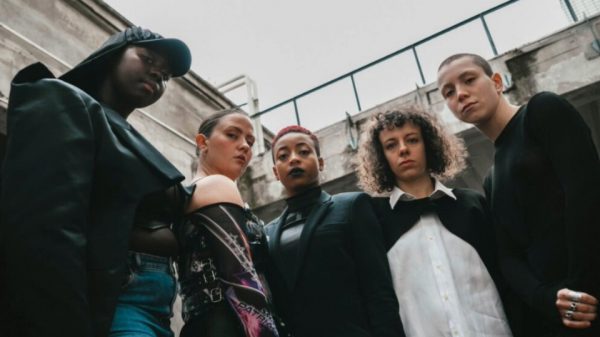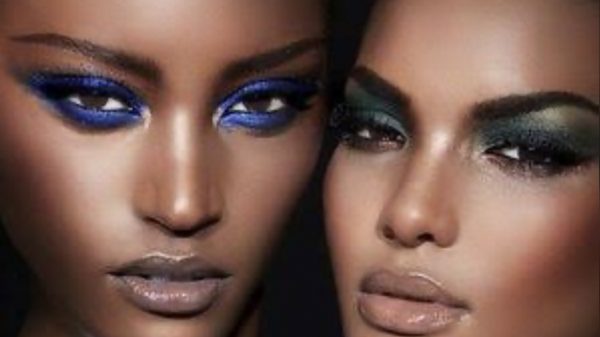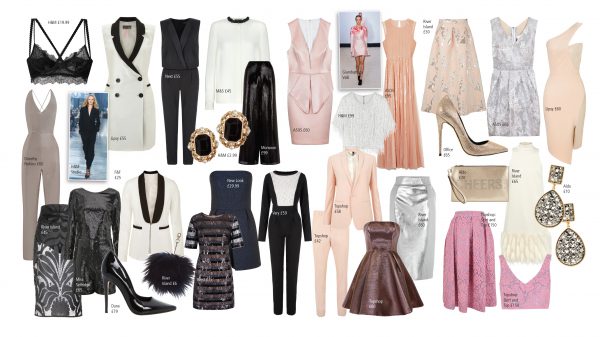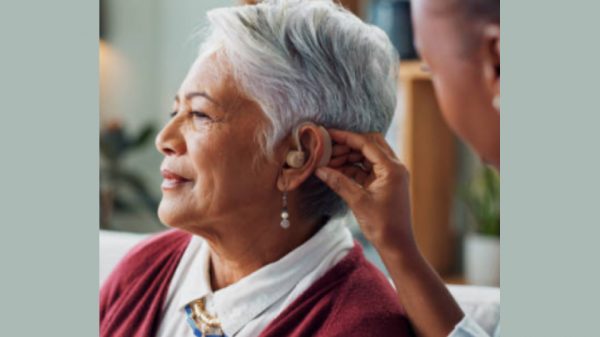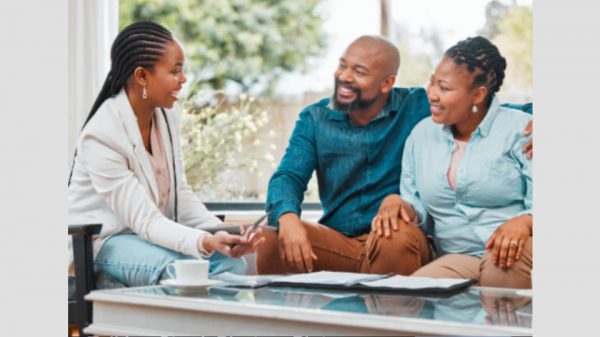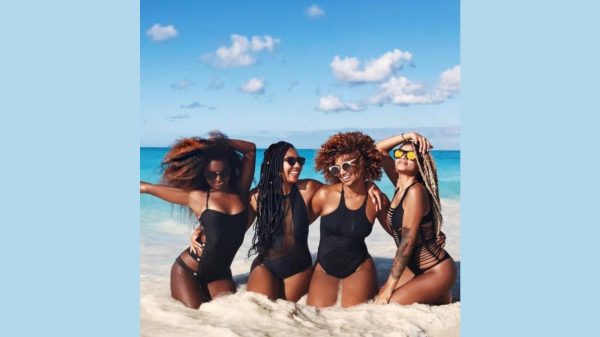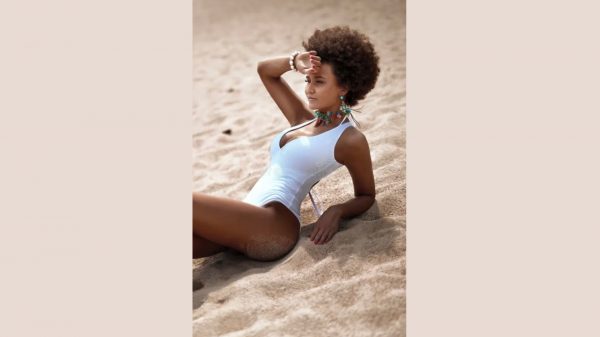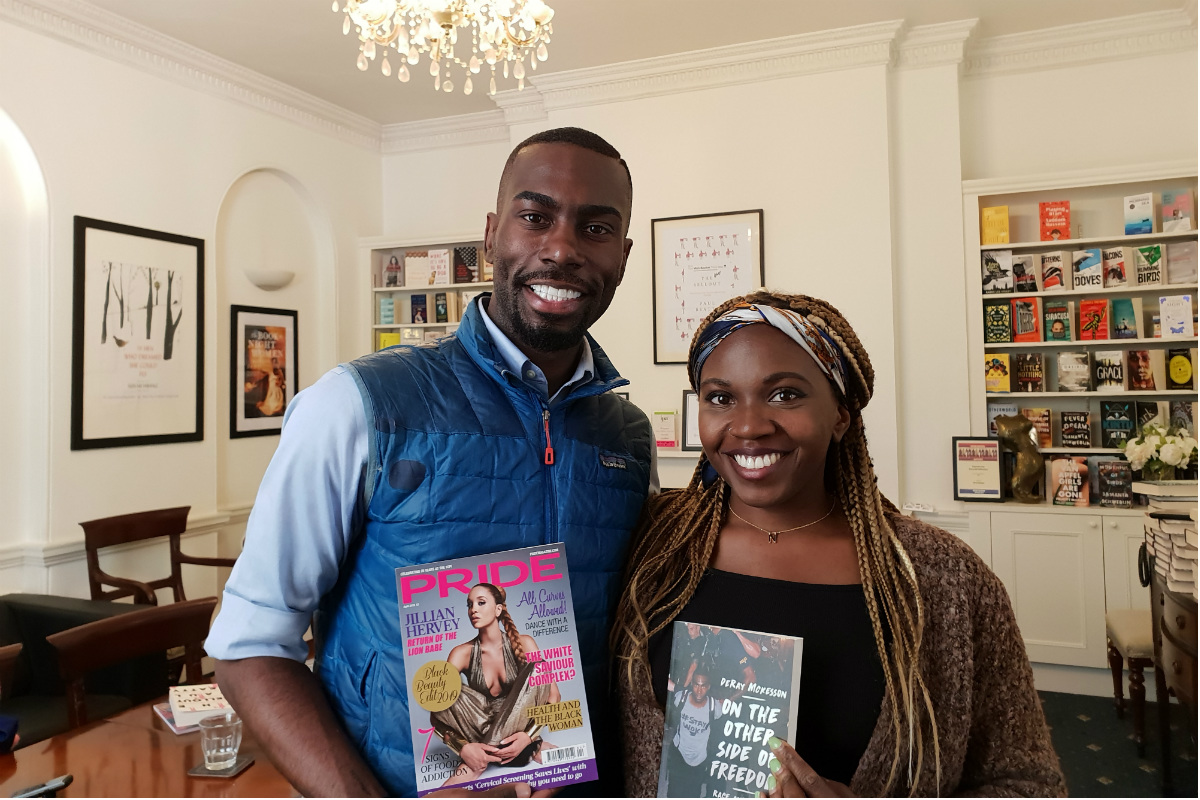As far as making marks go, Susan Wokoma has been one to watch for quite some time. For many, her turn in Chewing Gum as the sexually-repressed Cynthia was their first introduction to the comedic actress, as she managed to steal each scene she was a part of.
From there, she starred in cult favourite comedy-horror Crazyhead, and hospital sitcom Porters, as well as entertaining audiences with stage performances including political drama Labour of Love.
In the past year or so, she’s also been hard at work at creating her own pieces; she’s writing on projects that she tells me she can’t quite talk too much about, and she’s also preparing to return to her classically trained roots by playing Bottom in the Regent’s Park Open Air Theatre production of A Midsummer Night’s Dream.
In her latest TV project, Victorian comedy Year of the Rabbit, Susan Wokoma plays fledgling police officer Mabel. Fully suited in a corset and gown, she takes to the streets of London, alongside colleagues Rabbit (Matt Berry) and Strauss (Freddie Fox), solving crimes and righting mischief – and refreshingly, Wokoma’s character isn’t in the role of a servant, as other period productions might restrict her to, merely due to her ethnicity. It’s a chance for her to add to her already varied resume with a role that allows her to flex her comedy chops as much as she wants – and it’s what she deserves.
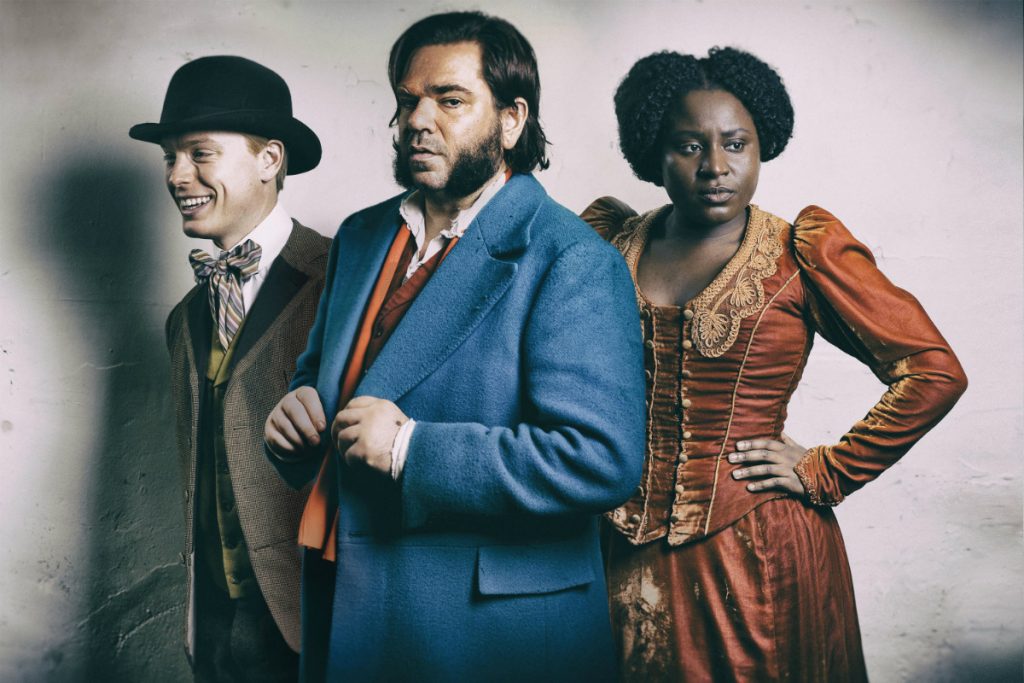
We spoke to Susan Wokoma about her career, expressing herself on social media, and questions of telling stories authentically.
Congratulations on Year of the Rabbit – I’m two episodes in and loving it so far. You play Mabel, the adopted daughter of a police chief, who’s hoping to become England’s first police female officer. Was your character written to be the black adopted daughter?
No, not as far as I know. I think Mabel was just a character, and they brought in lots of different people for the role – which is really, cool, and how it should be, really. Casting the net wide, and seeing who fits – especially with comedy, it’s important to find the right person who can do the part.
It’s really nice seeing a Black woman in a period piece and her not being in a subservient role; did that aspect feel special to you?
Yeah. We all know that Black people have existed [in Britain] for ages! (She laughs.) We know that they existed in the Victorian times, but as an actor, it’s always really escaped me, being cast in something set in this era – and you want to do anything, really. To get the opportunity to act in this time period, wear the get up – I’ve never worn a dress so big, so heavy, a corset so tight in my life – it was really fun, because there’s another host of different stories that you can be included in. It was a massive draw to me, because I have never seen it – a black woman in a period comedy show. It’s quite unique.
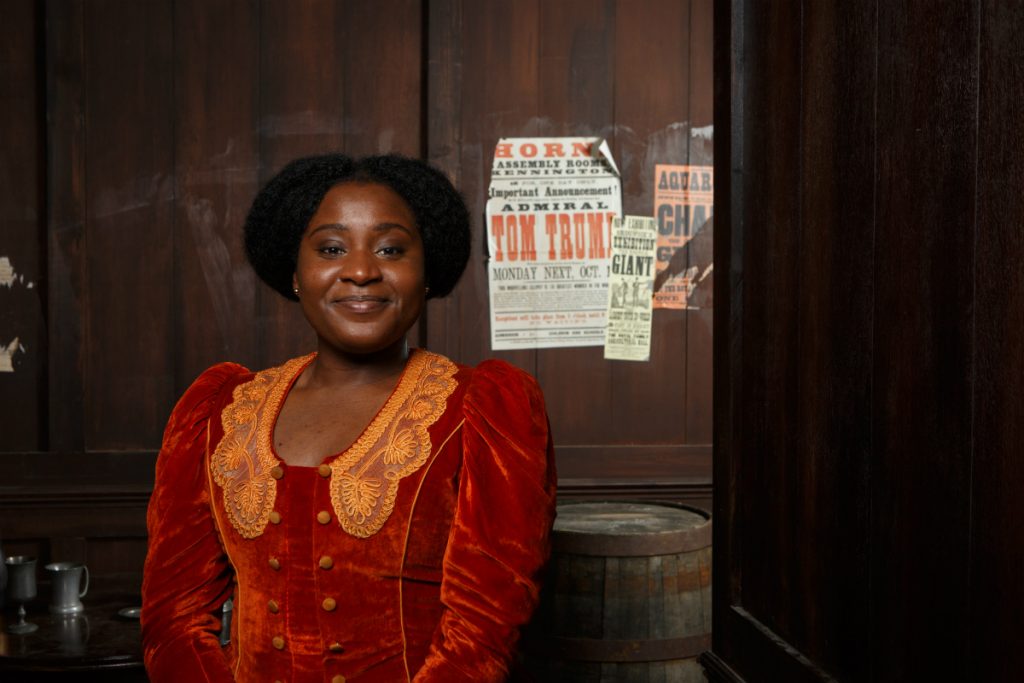
You have your hands in so many different projects at once. Is the UK at risk of losing you to the US anytime soon?
Oooh, well I guess the dream is that – with acting it takes you anywhere. I’ve got friends who disappear to Bulgaria for three months for filming; for Game of Thrones,you were in Belfast or Spain for months – so actually, you have to have this sort of traveller’s mentality, of going where the work is. So in terms of going to the States for work, I’ve never seen it as relocating; I’ve just seen it as if the opportunity arises, I’ll have the flexibility to do that. Or, I’ll continue to work here. I’ve always just wanted to go where there’s good work.
Speaking of acting in the States as a Black British actor, there’s been quite a bit of online debate on the topic recently. (A scene in the Netflix series She’s Gotta Have It that showed an African-American character expressing upset with a Black British actor for ‘taking roles’ from African-American actors drew criticism from many online.) You also expressed your feelings towards the situation – what are you thoughts on it now?
When it comes to accepting roles that don’t exactly match your background, I’m actually very careful about which jobs I take. I did a film last year that was set in Lagos, and I was very aware that a lot of the rest of the cast spoke Yoruba. My family are Nigerian, but we don’t speak Yoruba, we’re Kalabari – so they’re two different languages, two different tribes. And I remember before I took the job, one of the things I was questioning was, “Is this a Yoruba language film?” Not because I can’t pass for Yoruba, because I could, physically – but even then I feel a responsibility to tell a story authentically. I do think there is the need to have a discussion about Black British actors going over to the States – but ultimately, it’s always about the best person for the job. The thing that I take a gripe with is the idea that ‘we’re cheaper’. We’ve gotta look at where we are as a society; people are building up walls, literally and mentally. For me, it’s glaringly obvious why this sort of sentiment, “keep these people out, they’re cheaper”, is so indicative of what’s going on with the rest of the world. We can’t take the lead of fascism. (She laughs.) That’s not a good place to take our inspiration. Personally, as an actor, I’m a little bit embarrassed about how it’s been handled and that’s why I decided to speak out, because having a discussion is one thing; picking out individual actors and saying they speak for all Black British actors is just ridiculous, because all we’re doing is fighting to say they we’re not all one monolithic group, and yet you treat us in that way. It’s not helpful – so that’s one reason why I spoke out.
Do you ever feel nervous about expressing your opinion online, out of caution that it might upset prospective collaborators?
No. I feel like if you’re very worried about that sort of thing, then you probably shouldn’t do social media – and it’s very easy to not do social media. I know people who have social media accounts and don’t touch them, personally – they’ll have someone to manage it. I don’t, because I’m never mean. Everything I say is carefully considered, and I’m not a horrible person, so I think I’m alright! And I’m not jumping in and talking about something I don’t know about – this is what I do. If me speaking out is not ideal, then there are lots of people that I love collaborating with. For me this is useful, as a writer – how do we navigate hard truths. I’m writing a film about abortion – how do I do that, without just firing off at people?
And finally, you’re about to play Bottom, in A Midsummer Night’s Dream. What’s it like, returning to your classical roots?
It’s been amazing! Regent’s Park Theatre is one of the most beautiful spaces I’ve ever seen in my life. I went as a punter last year to see Little Shop of Horrors, and I couldn’t believe how beautiful it is, and I left thinking, ‘I want to work here.’ My training at RADA was largely classical training, we did so much Shakespeare – and then when I left, I barely did it. The only Shakespeare I’d done was at the Donmar in New York, in an all-female Shakespeare company. There we had all different accents and everything, it was not traditional – whatever ‘traditional’ even means. So coming to this, it felt like a challenge, which I wanted. I met Dominic, our director, and I thought, ‘My goodness, he’s a lovely bloke’ – and that’s ultimately why I chose to do it. I’m at a place where I want to work with good, decent people who want to do good, decent fun work. The company are brilliant, and I’ve had all the things I wanted, which is to be challenged, to learn a lot and to be a part of an ensemble as well – I’ve missed that, the feeling of being in a big gang. And doing that in the most beautiful venue as well, is – here comes a pun – a dream.
Year of the Rabbit airs on Mondays at 10pm on Channel 4. Susan Wokoma plays the role of Bottom in A Midsummer Night’s Dream at Regent’s Park Open Air Theatre from 28 June until 27 July 2019. Tickets and more information at openairtheatre.com.






